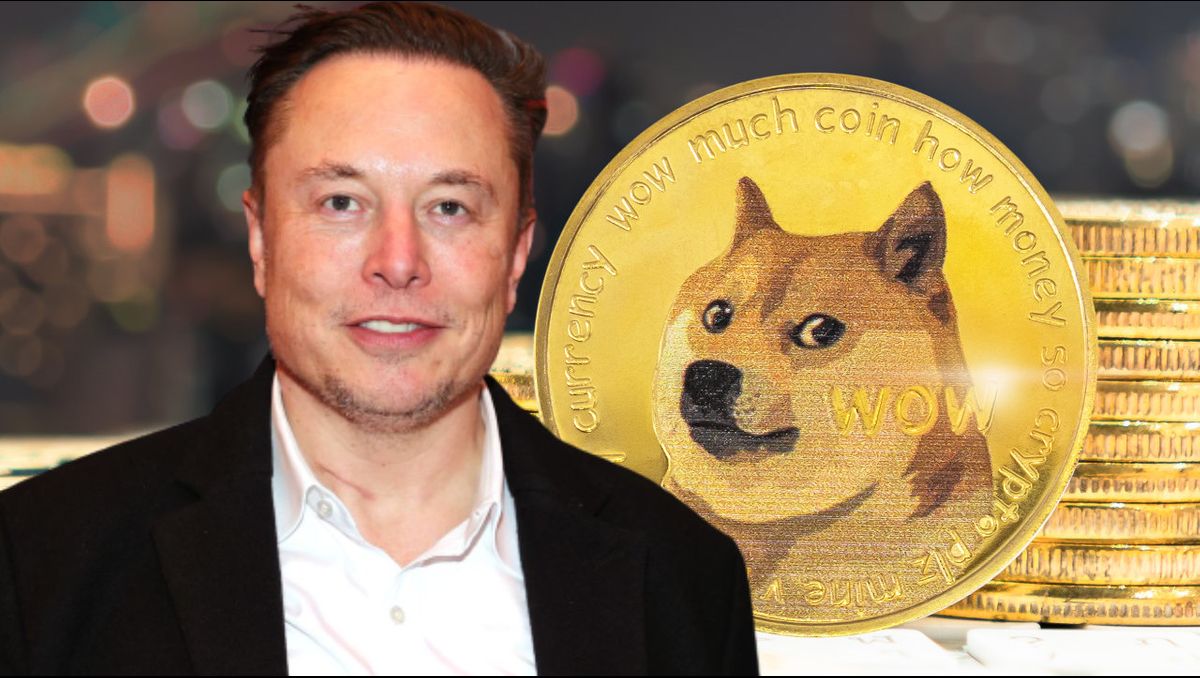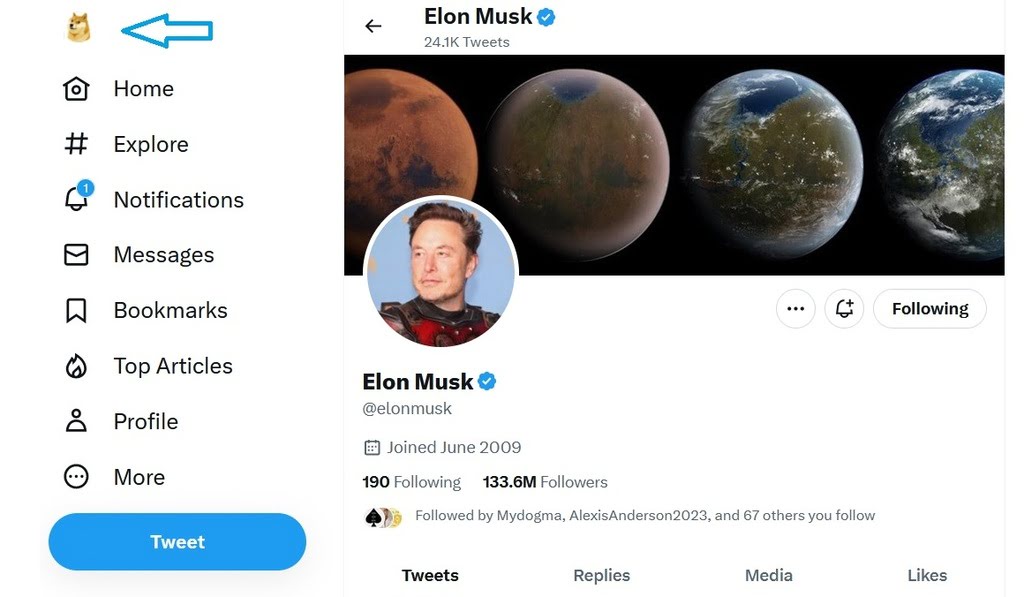Business
Elon Musk Changes Twitter Logo to Shiba Inu Causing Dogecoin to Jump 30 Percent

Dogecoin cryptocurrency increased by over 30% on Monday after Twitter CEO Elon Musk changed the blue bird on his company’s website with a Shiba Inu, the digital coin’s logo.
On Friday, lawyers for Twitter and Musk asked a federal court to dismiss a $258 billion lawsuit from 2022 that accused Musk of manipulating the price of Dogecoin and driving it up by more than 36,000%.
Musk posted a meme about the change to his 133.5 million Twitter followers after changing the Twitter logo to a Shiba Inu image. The dog showed only for some Twitter users, including those on the company’s website. Twitter did not reply to a comment request.
— Elon Musk (@elonmusk) April 3, 2023
Musk has been promoting Dogecoin for several years. He regularly tweets about the token, created as a joke in 2013, creating predictable volatility each time. Dogecoin is the eighth-most valued cryptocurrency, with a market cap of more than $13 billion, according to CoinMarketCap.com.
In a court filing Friday, Musk’s lawyers characterized his public statements about the coin as “innocuous and frequently silly tweets.”
However, Musk’s public support for the coin extends beyond social media comments. Tesla and SpaceX are two of Musk’s other businesses.
Two of Musk’s other companies, Tesla and the Boring Company, are named in the lawsuit.
Tesla announced in December 2021 that it would take Dogecoin for some merchandise. Musk stated on Twitter then that Tesla would “see how it goes.”
Following that post, the price of Dogecoin increased by more than 20%. When Musk declared on Twitter in January 2022 that Dogecoin payments were now available, the cryptocurrency rose by up to 15%.
Tesla does have digital assets, including bitcoin, on its books, and it still takes Dogecoin as payment for some merchandise.
“We have not sold any of our Dogecoin,” Elon Musk said last year during an earnings conference. “We have it still.”
Musk has stated that he directly owns Dogecoin.
In a recent tweet, Musk wrote “Dogecoin” in response to a picture of himself next to News Corp. Chairman Rupert Murdoch.
What’s Elon Musk’s name doing in the source code for Twitter’s algorithm?
Meanwhile, Elon Musk describes it as “weird” that his name was discovered in Twitter’s algorithm source code alongside designations such as “Democrat” or “Republican.”
Elon Musk responded to questions about the platform’s source code being released on GitHub on Friday.
During a Twitter Spaces event, two users pointed out that Musk’s name had been coded into Twitter’s recommendation algorithm, which explicitly labeled whether Musk had authored a tweet.
“I think it’s strange,” Musk said. “By the way, this is the first time I’ve heard of it.”
A branch of Twitter’s algorithm revealed that the platform not only recognized whether Musk wrote a tweet but also labeled tweets based on whether the user was a “Democrat,” “Republican,” or “power user.” The code segment has since been removed from GitHub.
“What’s going on, guys?” Musk asked Twitter engineers in the conversation.
During the meeting, Brian Wichers, a senior engineering manager at Twitter, stated that the specific categories were added to the algorithm about ten years ago and are “not overly important in how it’s used throughout the code base.”
Another Twitter engineer on the call clarified that the code is only used for monitoring and to “make sure we don’t bias toward one group versus another,” not for “special treatment.”
Musk stated that the code was an example of something the business should eliminate immediately.
“It definitely shouldn’t be dividing people into Republicans and Democrats. That makes no sense,” Musk said. “That’s why I prefaced this that there will be a ton of stupid, embarrassing things,” he added.
On Friday, Twitter published the code determining which tweets appear in a user’s For You timeline. Musk has been saying for months that he will increase transparency by open-sourcing the code of the social media site. On Twitter on Friday, the billionaire stated that the release reflected “most of the recommendation algorithm” and that the remainder would be released in the future.
Musk has previously criticized Twitter’s code and stated during his Twitter Spaces appearance that the business will change its code based on recommendations from outside engineers on GitHub.
Twitter explained how the algorithm determines which tweets to feature in a blog entry explaining the choice to release the code. According to the company, it has a three-step process that gathers the best tweets from “different recommendation sources,” ranks them using a “machine learning model,” and filters out blocked tweets, inappropriate tweets, or posts the user has already seen.
It’s not the first time that questions have been raised about Musk’s material being promoted on Twitter. Platformer reported in February that the billionaire had fired a Twitter engineer after the employee told him his popularity was dwindling on the site and had assigned engineers to investigate why his tweets were receiving fewer views after his tweet during Super Bowl Sunday received less engagement than President Joe Biden’s. According to the publication, Twitter engineers briefly gave Musk’s tweets an “artificial boost”.
Musk appeared to recognize his increased exposure on the site at the time, posting a meme about his tweets, and later stated that the company would be making additional changes to the algorithm.
Platformer revealed last month that Musk was not the only user benefiting from an artificial boost. According to the publication, Twitter has an internal Twitter list of 35 users established to monitor how algorithm changes affected the site’s most popular users but have since evolved into a list of people who receive preferential treatment on the platform.
With over 133 million followers, Musk is the most followed Twitter user.































